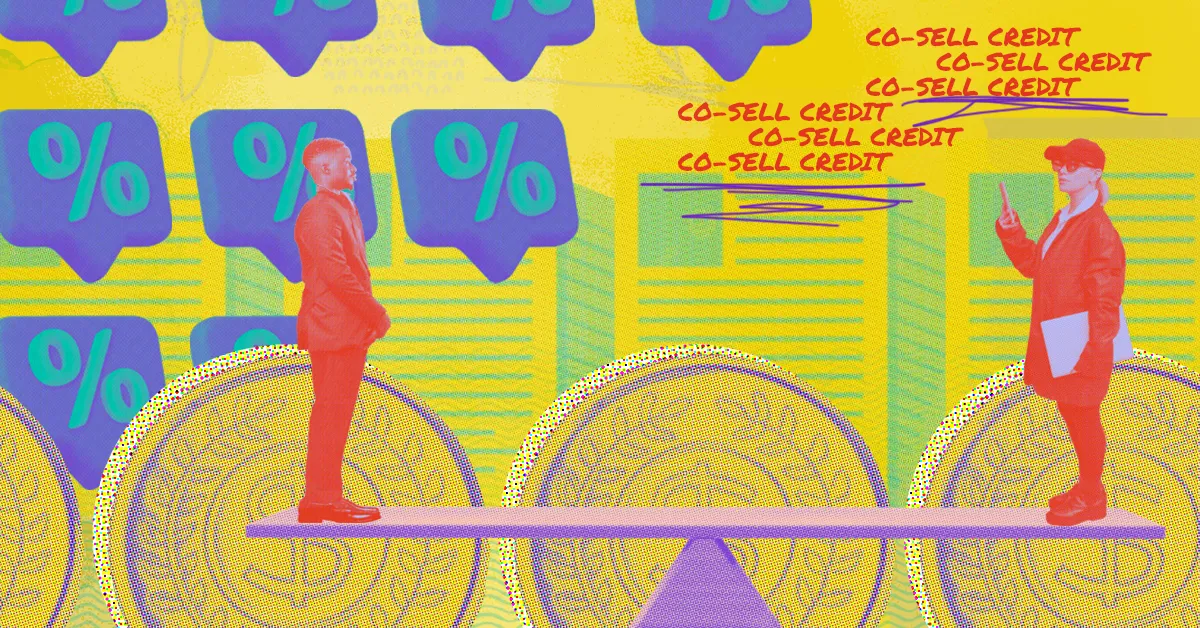Marketing and sales leaders have always had to make tough decisions in prioritizing which strategies and channels to spend their time and money on.
But those decisions became even harder to make in recent years. COVID forced every business to rethink their strategies and identify opportunities to reduce their level of risk, while also ensuring they don’t miss opportunities to generate revenue.
We’re here to make the case that if you want to drive significant revenue with minimal risk, you should launch a partner program as soon as possible, even if it means deprioritizing something else.
That’s not just because partner programs are a great way to drive growth without growing fixed costs; it’s because not running a partner program exposes your business to competitive threats that can be very difficult to undo.
In this article, we’ll cover:
- Why direct sales teams usually lose deals to partners
- What happens when your competitors launch programs before you
- How partners support your sales team while bringing in new revenue
Why partners win against sales teams
To understand what makes partnerships so crucial in selling SaaS, we need to understand what makes partners so different from your direct sales team. We’ll start with the biggest difference: if you’re competing for a deal against a partner selling your competitor, you’re at a severe disadvantage.
That might seem counterintuitive. How can a partner outperform an internal team with deep product and solution expertise?
When people buy products — and especially when businesses buy software — there are many factors that influence their decision, like how much it costs or how quickly it can deliver value. But more than anything, people don’t want to make the wrong pick and regret their decision, especially when that could come with heavy switching costs later on top of whatever the product itself costs. And so they look to minimize risk.
Sales teams lose out to partners on most deals because partners have the advantage of trust. While your sales team is working inbound leads or hunting for outbound to find new customers (to be clear: exactly what they should be doing), partners are dedicating their days to actively building relationships with their audience. Because that’s their entire business.
- Reseller partners build ongoing relationships with their clients and have a proven ability to meet the client’s needs effectively
- Affiliate partners publish content and build communities that establish their industry expertise across wide audiences
While you can earn trust through credibility-building content like case studies, guides and product walkthroughs, you can’t replicate the months or years partners have spent building trust with their audience.
When it comes time for the customer to decide, they’re always going to lean towards choosing the people they know and trust most. Wouldn’t you?
None of this means that partners are better than an internal sales team, or that they’re even at odds with each other. An effective partner program supports your account executives, bringing in more qualified prospects and selling to customers your own team would never have reached anyway.
But that only happens if you actually launch your program. If you don’t, your competitors will — turning who could be your sales team’s best potential partners into their toughest rivals.
The risks of your competitors getting ahead
Most SaaS startups put off launching a partner program until they really need the revenue. Sure, partner programs are a quick way to start driving new revenue, typically producing positive ROI in less than 12 months. But it still takes some time to define your partner personas, acquire your first partners and set them up for success.
This all becomes much more difficult if your best potential partners are already working with your competitors. That’s because:
- Partners don’t want to market solutions that compete with each other. They establish themselves as experts in a particular solution and set of tools, promoting products that complement each other rather than compete against each other. If a partner is already selling a specific CRM platform, they’re more likely to market tools that integrate with it than tools that compete with it. There’s little incentive for them to divide their time and resources marketing competing products, when they could sell additional products instead.
- It’s difficult to get partners to switch from marketing one product to another. When partners have spent time understanding how to best position and sell a specific solution, and built their audience around that solution — why would they throw it all away to start over with your program? More commissions won’t be enough to get them to switch.
- Partner communities align themselves around the most promising programs. Partners talk to each other, form alliances of their own and share strategies that work for them. Once a program starts showing momentum, partners will start aligning themselves around what looks to be the front-runner. The more time competitors have to establish their programs ahead of you, the harder it will be for your program to gain traction when you finally launch it.
Once competitors have their program established, your sales and marketing teams aren’t just competing against your competitors’ direct teams — they’re competing with potentially hundreds or thousands of competitor partners, each of them creating content and establishing relationships with the customers you want to be selling to.
It’s not impossible to catch up. But it’s really, really hard. And the longer you wait, the harder it gets.
See more: Win internal trust and buy-in for your partner program.
Partnerships managers drive more efficient growth
For a partner program to succeed, it needs to be managed by a partnerships manager dedicated to and accountable for that success. Yet companies can be hesitant to invest in a dedicated partnerships manager to drive their program, despite the fact that partnerships managers have the potential to drive uncapped revenue compared to account executives (or AEs) in your sales team.
A typical account executive can drive revenue equivalent to roughly 3-6x their compensation. Because each of them has to build a relationship with their prospects directly, there’s a limit to just how many people even an excellent AE can meet and sell to in a day.
In contrast to that, a typical partner manager could manage anywhere from dozens to thousands of partners, depending on the type and scale of the program.
- Partnerships managers running reseller programs work with fewer numbers of higher-value partners, such as agencies, that sell solutions directly to your ideal customers
- Partnerships managers running affiliate programs work with large groups of partners that market products online, generating awareness and qualified leads from all-new audiences
Because partnerships managers manage multiple partners who themselves reach multiple customers, a single partnerships manager has the reach of multiple AEs.
Partnerships managers have a bit of an unfair advantage: partner relationship management (PRM) software provides much of the support necessary to scale programs to hundreds or thousands of partners without scaling costs or headcount.
The PRM software we build, PartnerStack, lets partnerships managers run multiple types of programs (such as affiliate and reseller programs) with automated onboarding flows that are unique to each partner group. PartnerStack also gives partners their own dedicated portal to download resources and message the partnerships managers they work with.
While I’d obviously recommend PartnerStack over others (being a co-founder just one among many reasons), there are many PRM software options on the market designed to help partnerships managers scale their programs up.
The other factor that helps partnerships scale so well is the high level of control you have over costs. Beyond your partner managers’ compensation and the software you choose, the major cost of running a program is the commission paid to partners — a variable cost you have complete control over. This means partnerships managers deliver lower, more predictable customer acquisition costs (CAC) than your internal marketing and sales teams can alone.
Start supporting your sales with partnerships
One of the biggest misconceptions sales teams have about partners is that they’ll be competing against each other, fighting over slices of the revenue pie.
In reality, a successful partner program simply results in a much bigger pie. Partners bring in pre-qualified leads and deals your team wouldn’t normally have access to, all the while educating your market on the value of your product.
This is all only possible when you have a strong sales foundation already.
In fact, the only time that isn’t the right time to launch a program is if you can’t successfully sell your product to customers yourself. Partners will be looking to your direct sales and marketing to define what success looks like. If you can’t sell your own product, you won’t be able to give partners what they need to sell it, either.
But if you can sell your product, you can help your partners sell it too. So make sure you get to them before your competitors do.
Want a checklist to ensure you’re ready to launch? Check out another article on 5 questions to answer before launching your partner program.

















